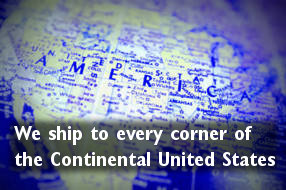While RVs provide a great home-away-from-home traveling experience, they do use a lot of gas. Many people are looking for ways to improve fuel economy while still enjoying their RVs. The following information discusses several ways to improve RV MPG on trips.
1. Keep the Vehicle in Top Shape
The first way to increase RV MPG is to keep the vehicle in top running condition. This includes everything from keeping tire pressure at the recommended levels and changing air filters on a regular basis. It’s estimated that driving with the proper tire pressure can improve fuel efficiency by up to 3 percent and having clean air filters can increase efficiency by up to 10 percent.
2. Use the Cruise Control
For all those long road trips on the interstate keeping the RV on cruise control as much as possible will definitely help improve fuel economy. Keeping the vehicle running at a steady speed can save on fuel costs. Constantly slowing down and then speeding up will decrease overall fuel efficiency.
3. Use the Right Type of Fuel and Motor Oil
Don’t use premium if the RV can take regular fuel. If the RV does require premium fuel, however, it’s definitely unwise to use regular grade. While this may seem to save money in the short run, it will likely cause maintenance problems. Using the right grade of motor oil can also increase RV MPG.
4. Reduce Excessive Weight
Hauling excess weight will require more fuel. It’s important to check the GVWR (gross vehicle weight rating) in the RV to know exactly how much weight is recommended. To reduce weight make sure waste tanks are emptied before leaving on a trip and, if possible, wait to fill water tanks at the campsite. Firewood is another item that weighs a lot and can often be purchased at a campsite. Weights can be checked at truck stops or repair facilities that have scales. It’s also important to make sure that weight is as evenly distributed as possible.
5. Drive Responsibly
Driving over the speed limit is not only dangerous in a larger vehicle but it can dramatically lower fuel efficiency. It is sometimes recommended to use overdrive whenever possible. This will decrease engine speed and ultimately save on fuel costs. Another drain on fuel is the use of the air conditioner. During hot summer months if it seems unbearable to go without it, try to limit the use of the air conditioner and keep it on the lowest level possible.
6. Change the Tires
Most RVs come with soft tires that are meant to provide a smooth ride. To improve fuel economy, however, it is recommended to use harder tires. Truck style tires are the better choice if the goal is getting maximum fuel economy. Hard tractor trailer tires are usually cheaper as well. They might not provide as smooth of a ride as specialty RV tires, but they’ll provide savings on fuel as well as the overall cost of the tires.
7. Plan Trips Wisely
The way trips are planned can definitely affect how much fuel is used. It is important to travel on interstates as much as possible as opposed to secondary roads. Being able to travel at a constant speed without having to slow down for stop signs and lights will increase fuel economy. Finally, staying in one place for a longer amount of time instead of almost constantly being on the road will obviously save on fuel costs.

